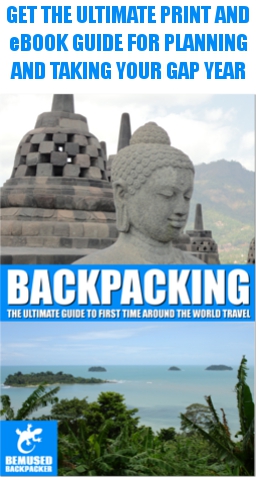
There are a wide variety of mosquito borne diseases that can affect travellers and have a seriously negative affect on their health as well as their gap year adventure, but perhaps the two most common, and most well known, are malaria and dengue fever. This article will take you through the basics of what you need to know before you go.
Malaria.
Malaria is one of the biggest mosquito borne diseases that still affects travellers and is a disease that is dangerous not just because of the impact it has on travellers health, but the high level of misinformation and misunderstanding that so many travellers have about it.
What Is Malaria?
Malaria is a potentially fatal disease that is spread exclusively through the bite of the female Anopheles mosquito. It is caused by a parasite called Plasmodium, which multiply in the liver and then affect red blood cells.
There are essentially four types of plasmodium parasites.
- Plasmodium Falciparum,
- Plasmodium Vivax,
- Plasmodium Malariae,
- Plasmodium Ovale.
Malaria is prevalent throughout tropical and sub tropical regions, and outbreaks of various intensities and length are common in many countries throughout these regions, so the ‘danger zones’ of the at risk areas can often wax and wane.
What Are The Symptoms Of Malaria?
Symptoms of Malaria include sever flu like symptoms such as shivering, coldness, a dull muscular ache, mild to severe fever, rash, headaches, diarrhoea and vomiting. They can occur anytime, most often up to fifteen days after the actual bite but can in some people take up to 4 weeks or in some cases even up to a year.
The big danger of these initial flu like symptoms is that they are similar to a wide variety of other diseases and can be very difficult to actually recognise as Malaria. This means that anyone who has contracted malaria runs the risk of not realising it or brushing it off if the symptoms are mild enough, and if not treated promptly it does have the potential to cause serious long term damage to the liver or even be fatal.
Diagnosis can only be made by health professionals taking a blood sample so it is important that you get yourself to adequate medical facilities as soon as possible if you suspect you have contracted Malaria.
What To Do?
There are basically only two ways you can try and prevent Malaria, by mosquito avoidance measures and anti malarial prophylaxis.
It is important that you check up to date information with your local GP surgery or travel clinic, the World Health Organisation or the CDC before you travel, and get up to date and accurate information specific to the region you are travelling to as different medications will be effective, or non effective, in different regions.
Anti malarials will also be prescribed based on your own specific medical history. Not all anti malarial medication is suitable for every destination, not every type of antimalarial suits everyone, some react very differently to others and of course there are always allergies and pre existing conditions to take into account. Which one you decide to take should be discussed with the practice nurse or physician in specialist clinics.
If you do contract Malaria, then hospitalisation is necessary. The only treatment is the same prophylaxis used to prevent Malaria, but if you have taken preventative prophylaxis and contracted Malaria anyway (they are not always 100% effective), then the treatment is often quicker and much easier, where a different antimalarial, or even a combination, will be used to treat you.
If medical help is sought quickly enough then full recovery is possible.
Dengue Fever.
In many ways dengue fever is as prevalent as Malaria, but is often ignored by many travellers, if they have even heard of it at all.
What Is Dengue?
Dengue fever is a viral infection transmitted by the bite of an infected Aedes aegypti or more rarely the Aedes albopictus mosquito. Any mosquito that bites during the daylight hours has a chance of carrying the disease. It is becoming increasingly problematic throughout the tropical and sub tropical world from South America to Asia, and has become a major international public health concern. Serious intermittent outbreaks occur frequently right across South and Central America, Africa and Asia.
What Are The Symptoms Of Dengue?
Symptoms can include flu like symptoms similar to the symptoms of Malaria, a mild to severe fever, rash, muscle, joint and bone pain, which can be extremely painful and has led to the nickname break bone fever.
There is no vaccine or cure for dengue fever and there is no treatment, but it is not fatal and will in the majority of cases usually resolve itself.
Dengue hemorrhagic fever (DHF) however is a more severe form of dengue and can sometimes be fatal if not recognised and medically managed by physicians and nurses quickly enough.
What To Do?
You should always check for recent outbreaks in areas you want to travel to and plan accordingly.
Mosquito avoidance measures are the best and only way to reduce the risk of getting bitten and contracting the disease. It is almost impossible to completely protect yourself, but by taking specific avoidance steps you can significantly reduce the risks.
There is no treatment or medication for dengue, the only thing that can be done if you contract it is to treat the symptoms. Stay well hydrated, rest and take analgesics for the pain.
Related Articles.
15 Common Malaria Myths Debunked.
Be Mosquito Ready For Your Gap Year.
Debunking 6 Common Myths About Mosquito Repellents For Gap Year Travellers.
Do You Really Need Anti Malarial Medication On Your Gap Year?
How To Avoid Mosquito Bites On Your Gap Year.
My Battle With Dengue Fever In India.
Natural Or Chemical Mosquito Repellents, Which Is Better For Travellers?
Should You Be Worried About Dengue Fever On Your Gap Year?
The Ultimate Travellers Guide To Malaria And Antimalarials.
What Mosquito Repellent Is Best For Your Gap Year.

Have you read all the information but still need a little more specific advice? Is there a travel health issue that you are worried about and need a little reassurance on? Need some information on malaria, or which vaccinations you will need? Is there a travel health issue you would like to ask about in complete confidence?
Well I am here to help.
Apart from being an experienced backpacker with over 20 years travel experience, I am also a qualified nurse who specialises in emergency nursing and travel medicine.
The Bemused Backpacker Travel Clinic is an indispensable online resource for you to gain a one on one consultation with a medical professional giving you personal reassurance, expert information and qualified advice for any and all of your travel health related questions. To head into the Travel Clinic, click here




